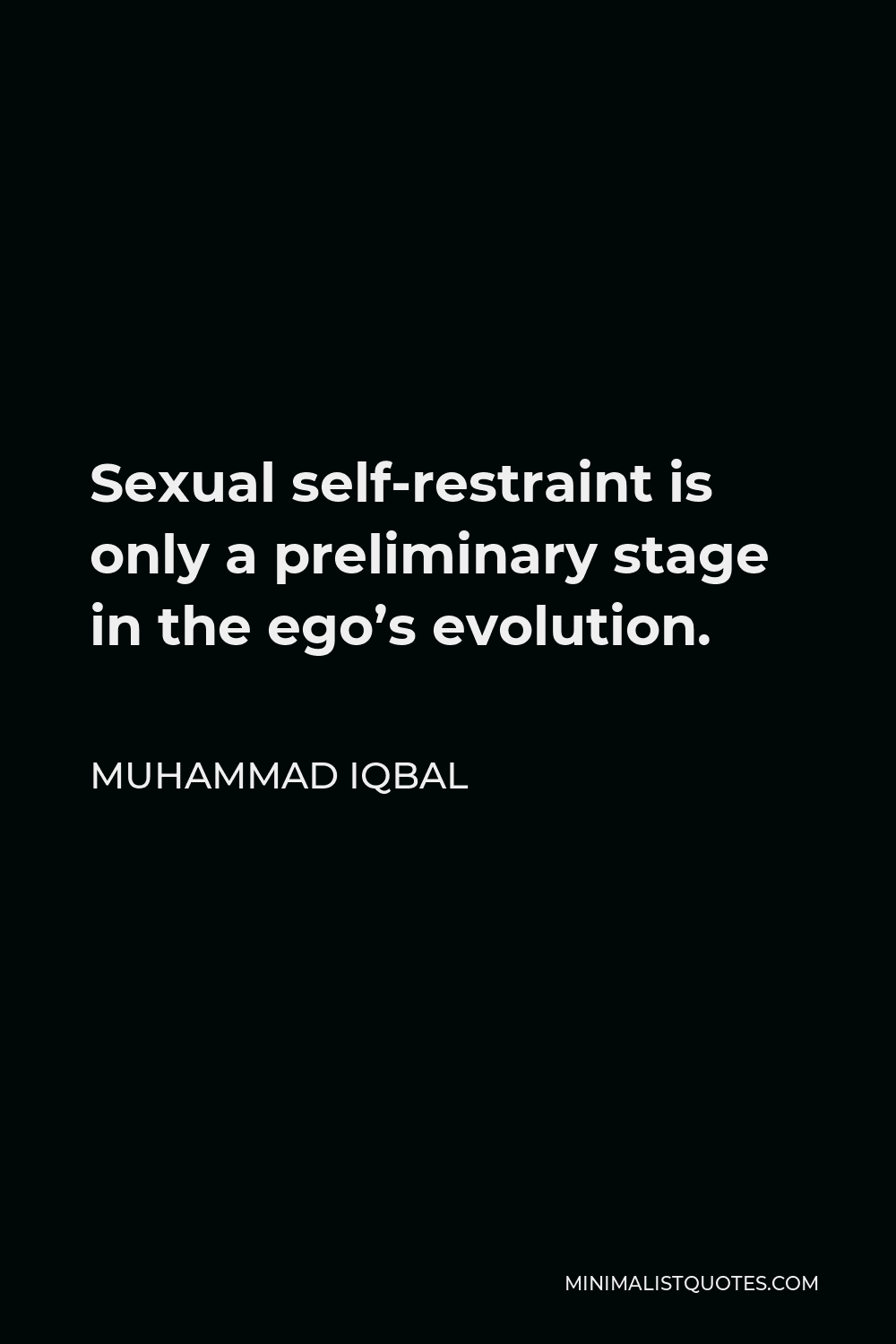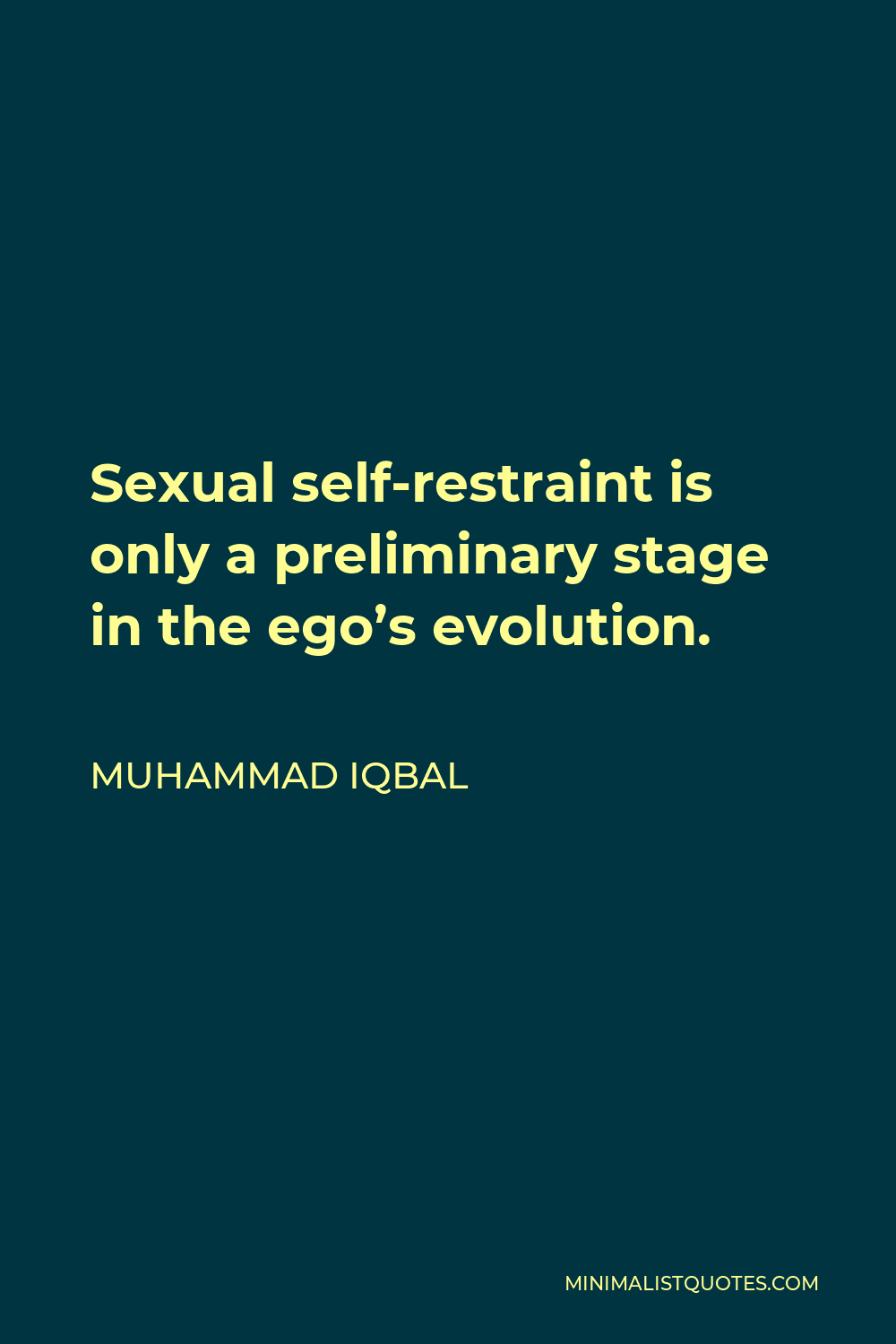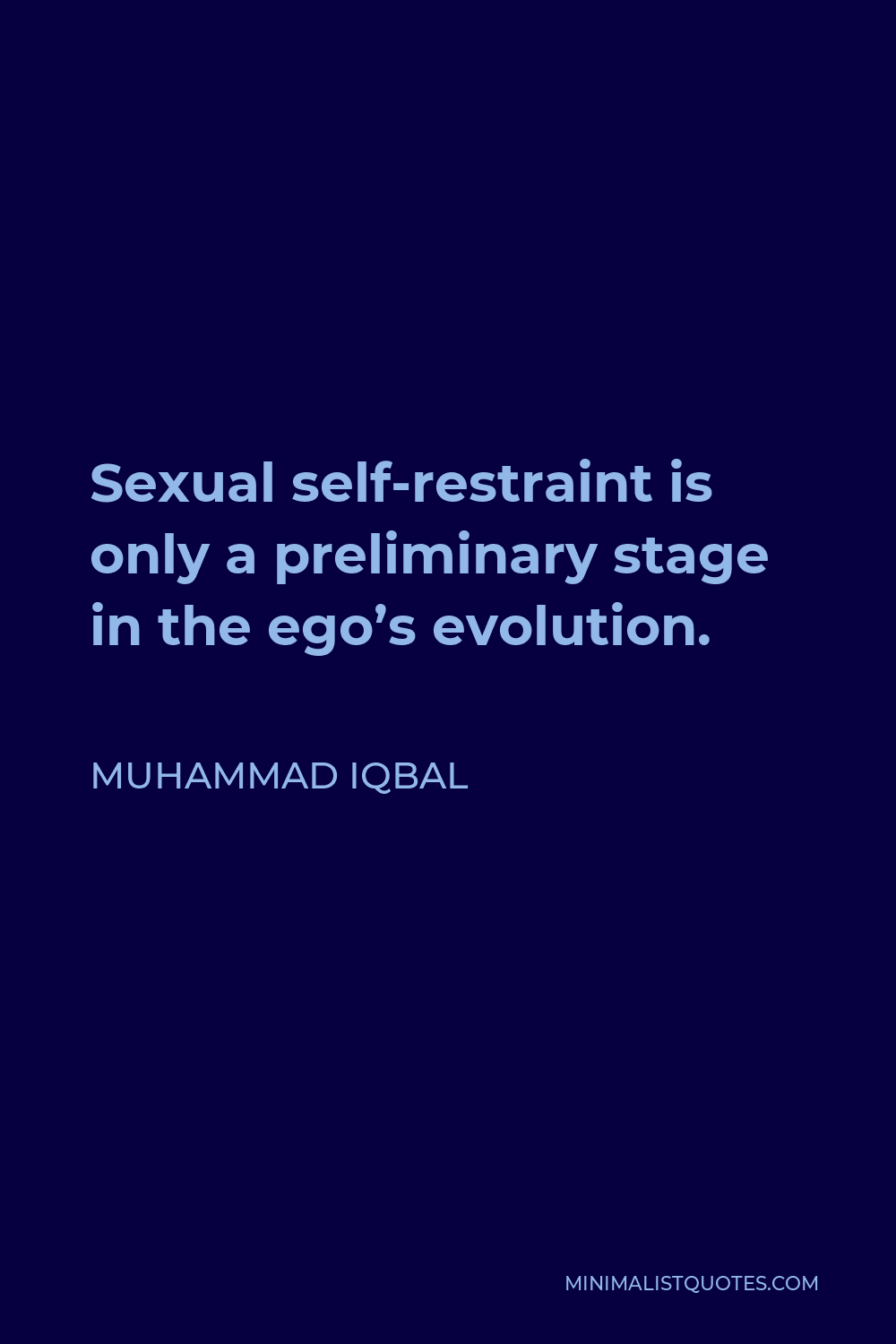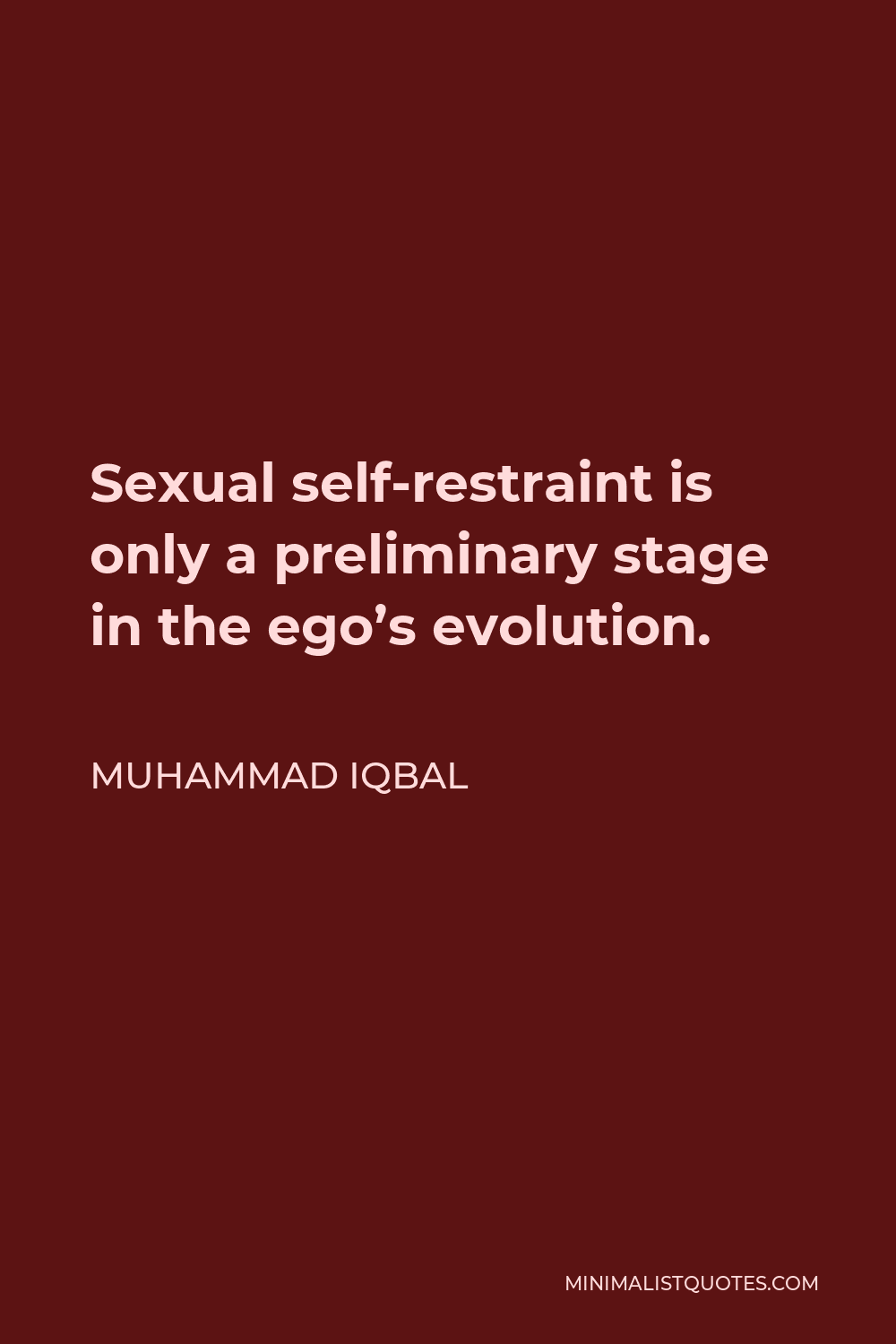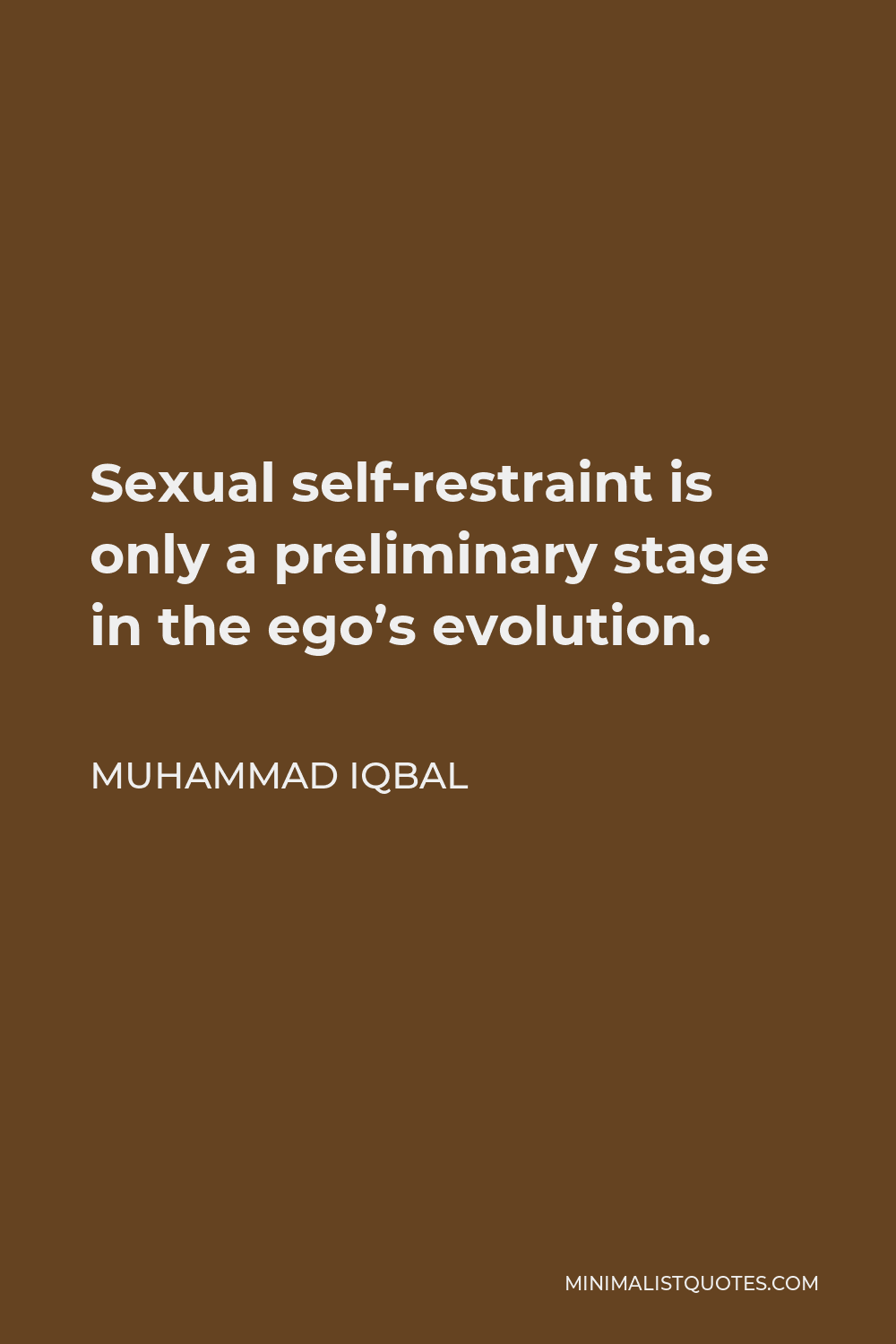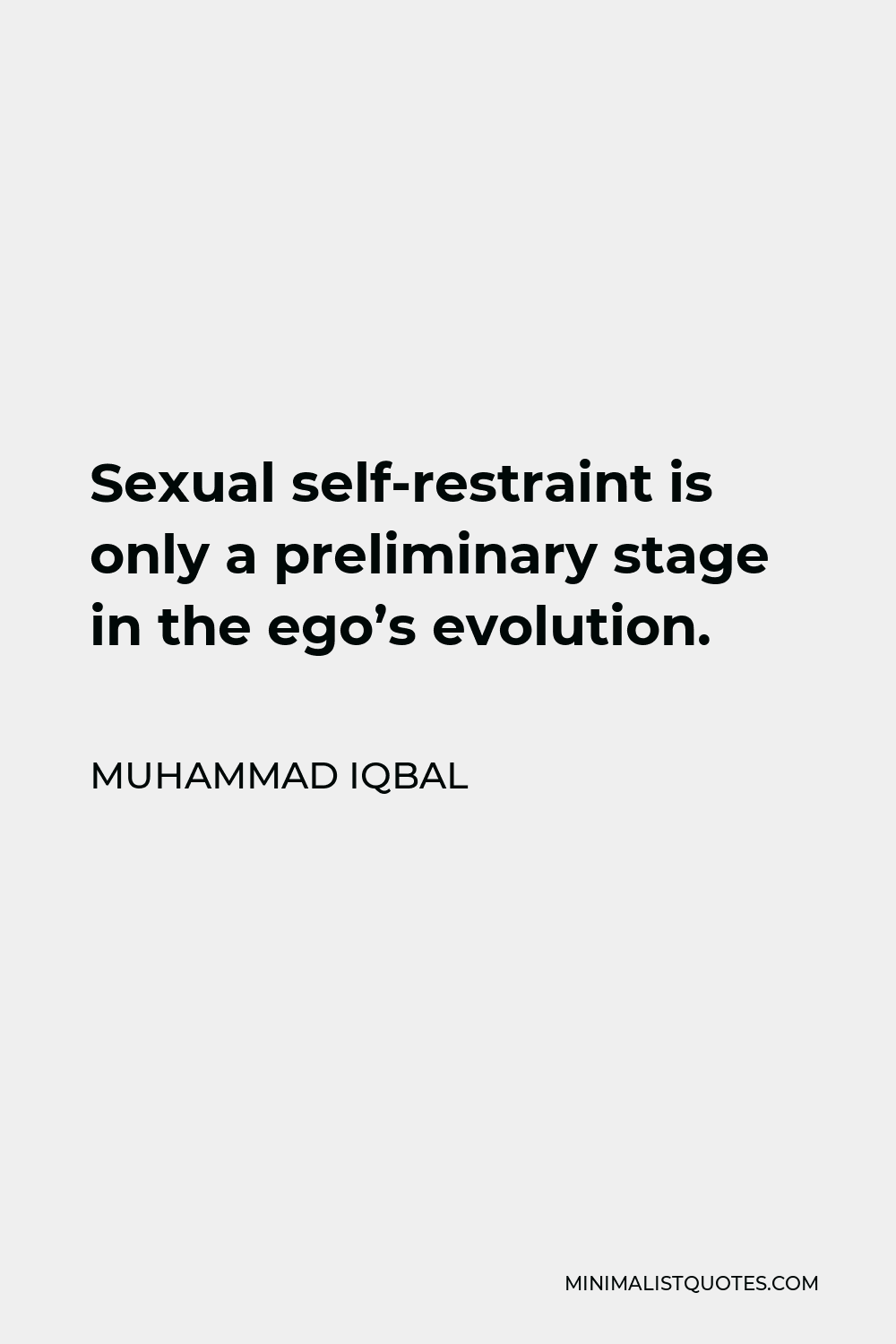Yet higher religion, which is only a search for a larger life, is essentially experience and recognized the necessity of experience as its foundation long before science learnt to do so.
MUHAMMAD IQBALSexual self-restraint is only a preliminary stage in the ego’s evolution.
More Muhammad Iqbal Quotes
-





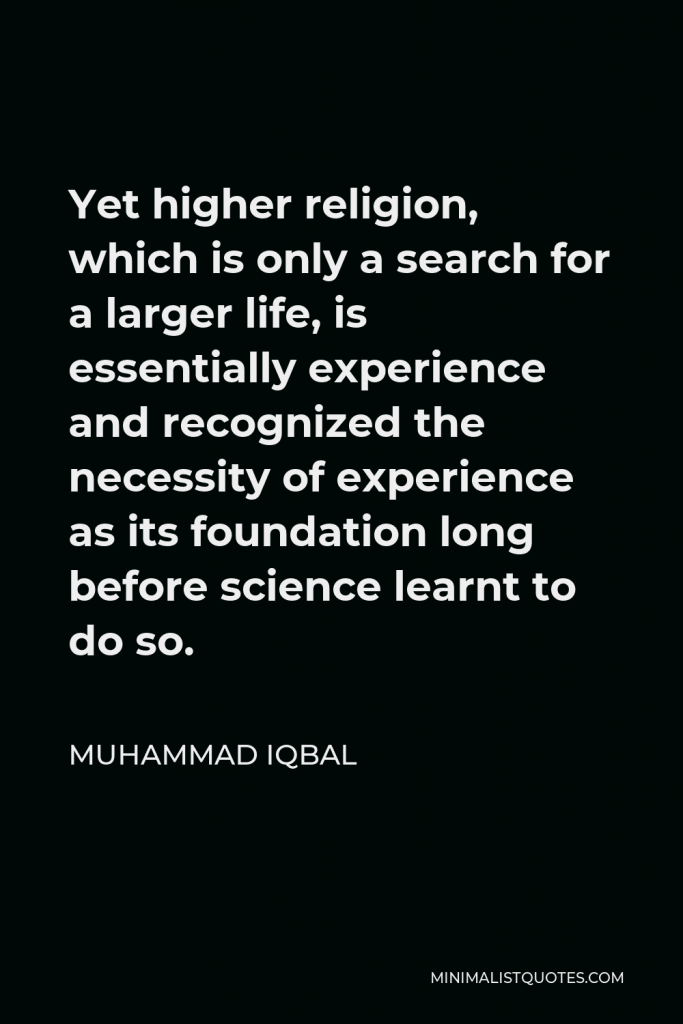

-





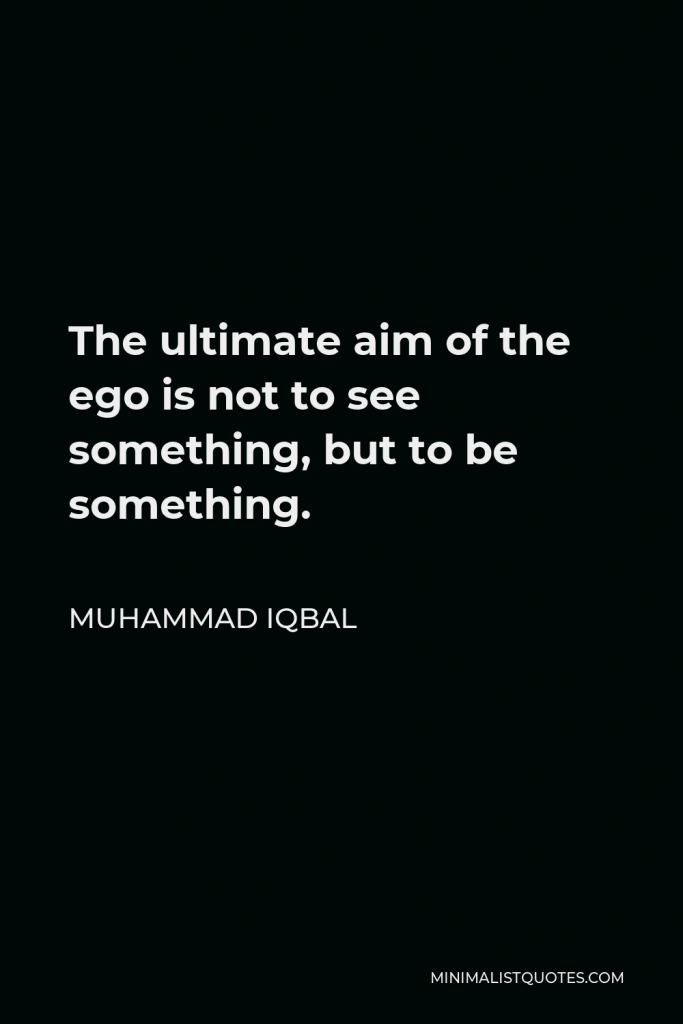

The ultimate aim of the ego is not to see something, but to be something.
MUHAMMAD IQBAL -





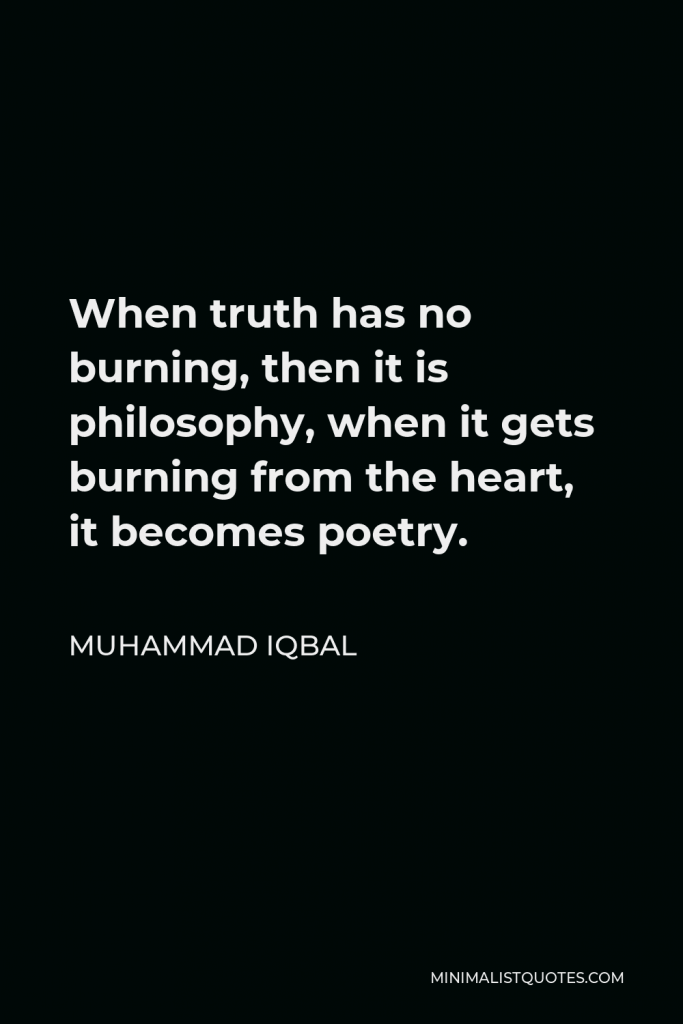

When truth has no burning, then it is philosophy, when it gets burning from the heart, it becomes poetry.
MUHAMMAD IQBAL -





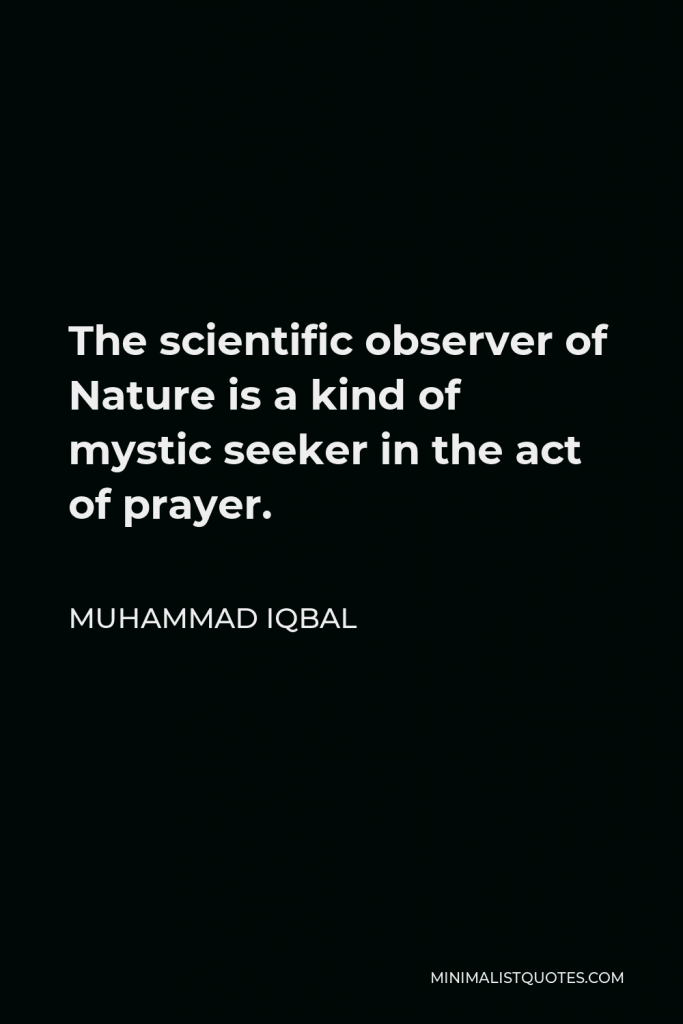

The scientific observer of Nature is a kind of mystic seeker in the act of prayer.
MUHAMMAD IQBAL -





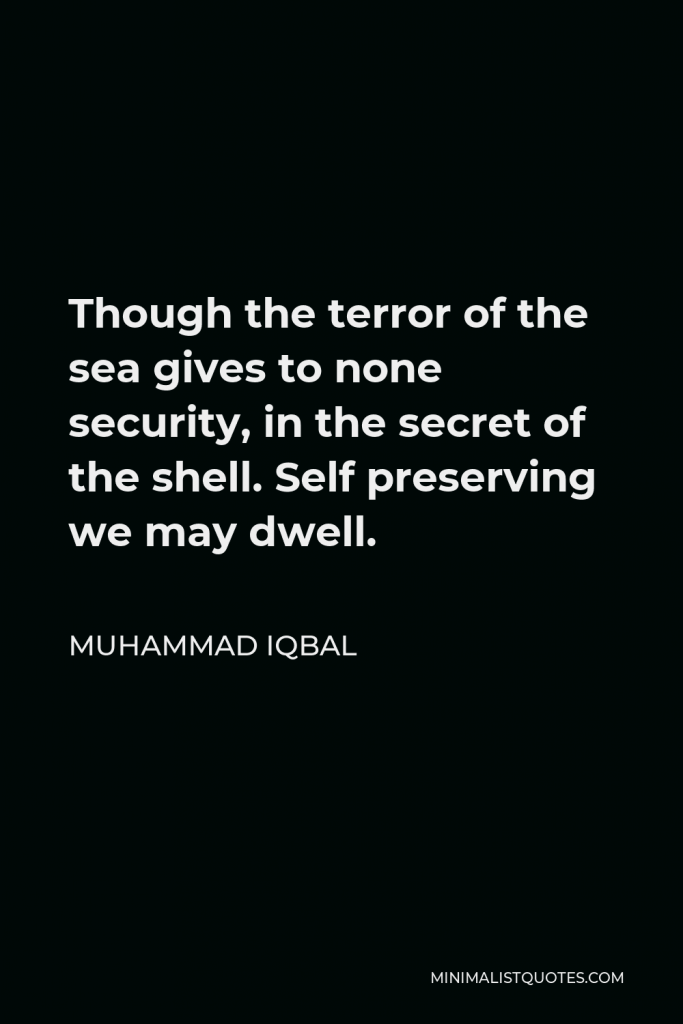

Though the terror of the sea gives to none security, in the secret of the shell. Self preserving we may dwell.
MUHAMMAD IQBAL -





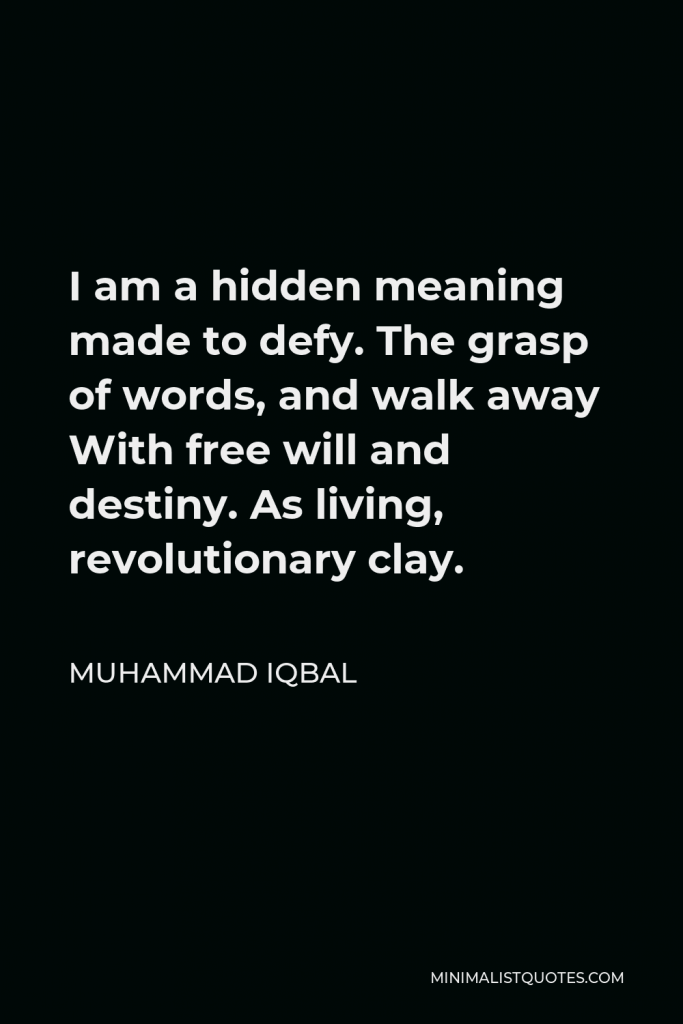

I am a hidden meaning made to defy. The grasp of words, and walk away With free will and destiny. As living, revolutionary clay.
MUHAMMAD IQBAL -





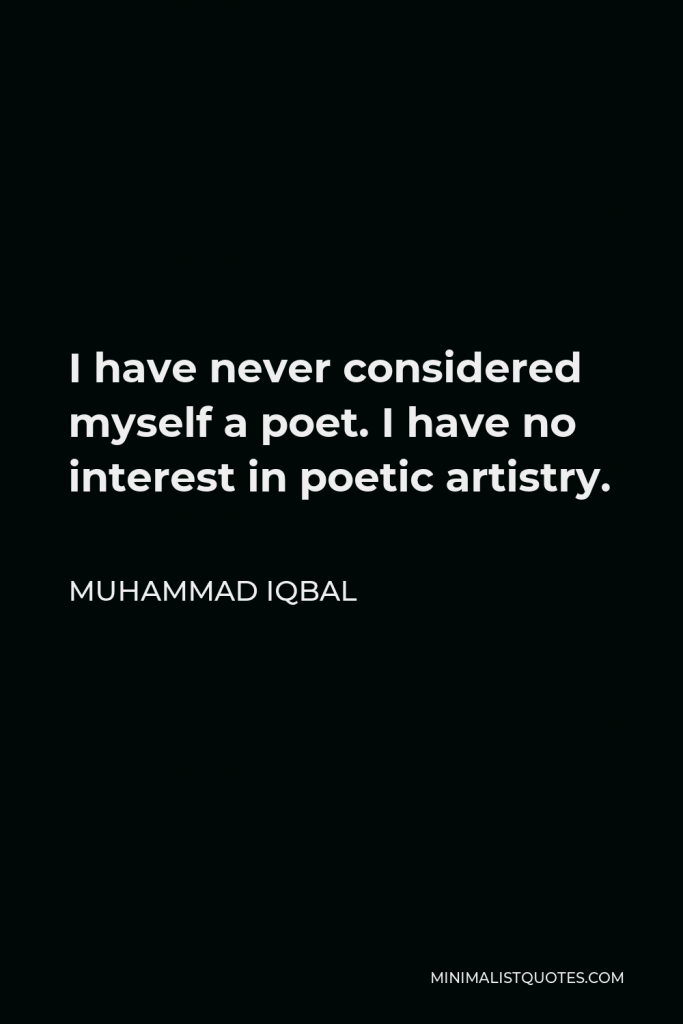

I have never considered myself a poet. I have no interest in poetic artistry.
MUHAMMAD IQBAL -





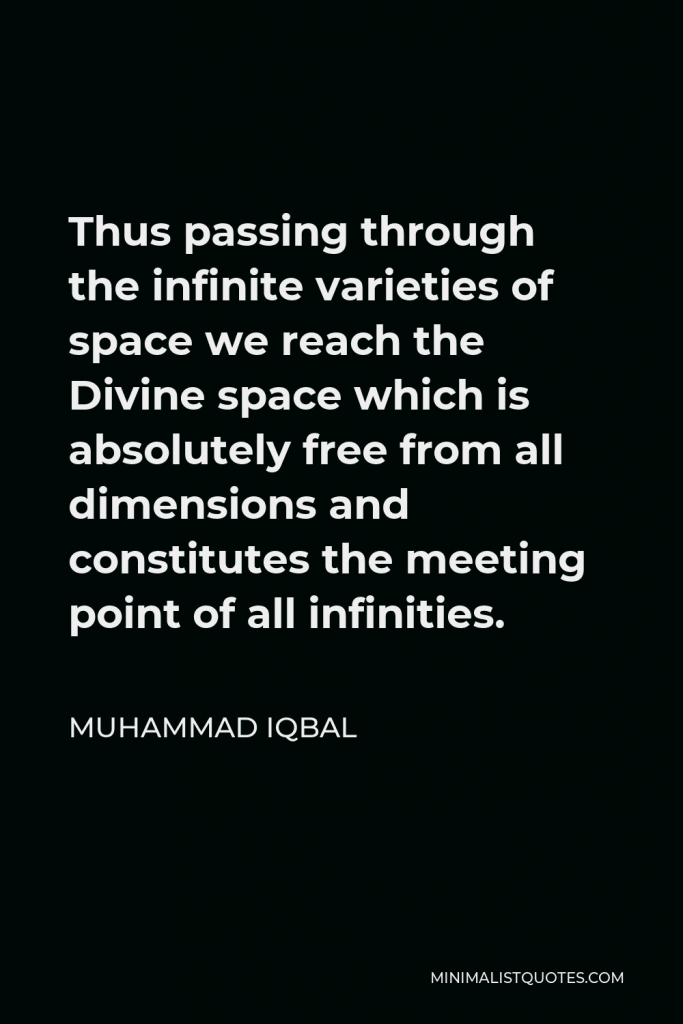

Thus passing through the infinite varieties of space we reach the Divine space which is absolutely free from all dimensions and constitutes the meeting point of all infinities.
MUHAMMAD IQBAL -





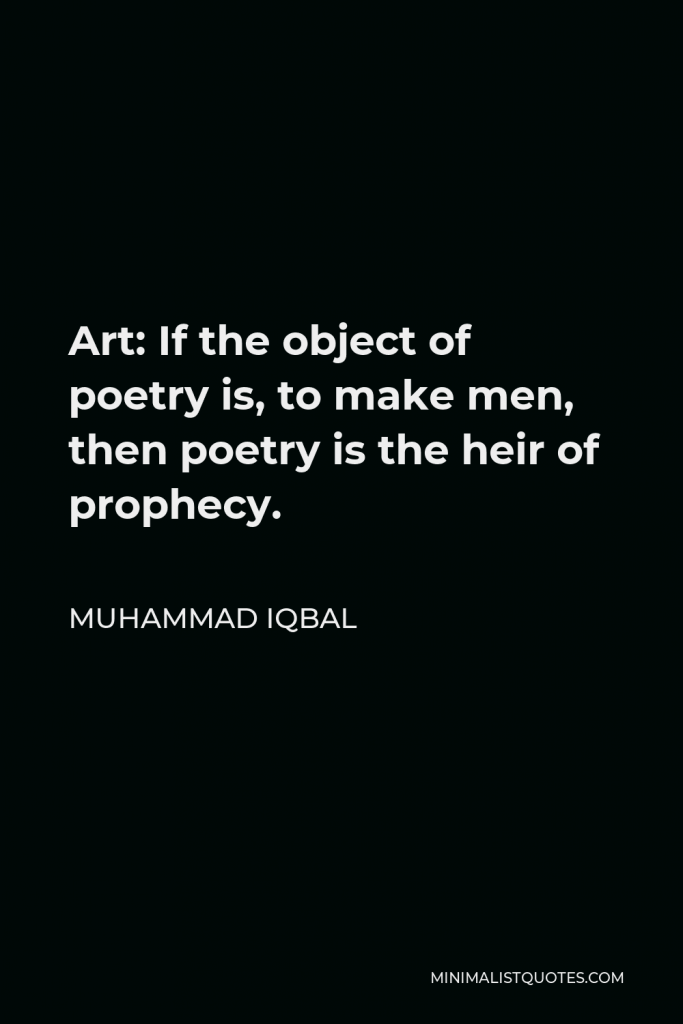

Art: If the object of poetry is, to make men, then poetry is the heir of prophecy.
MUHAMMAD IQBAL -





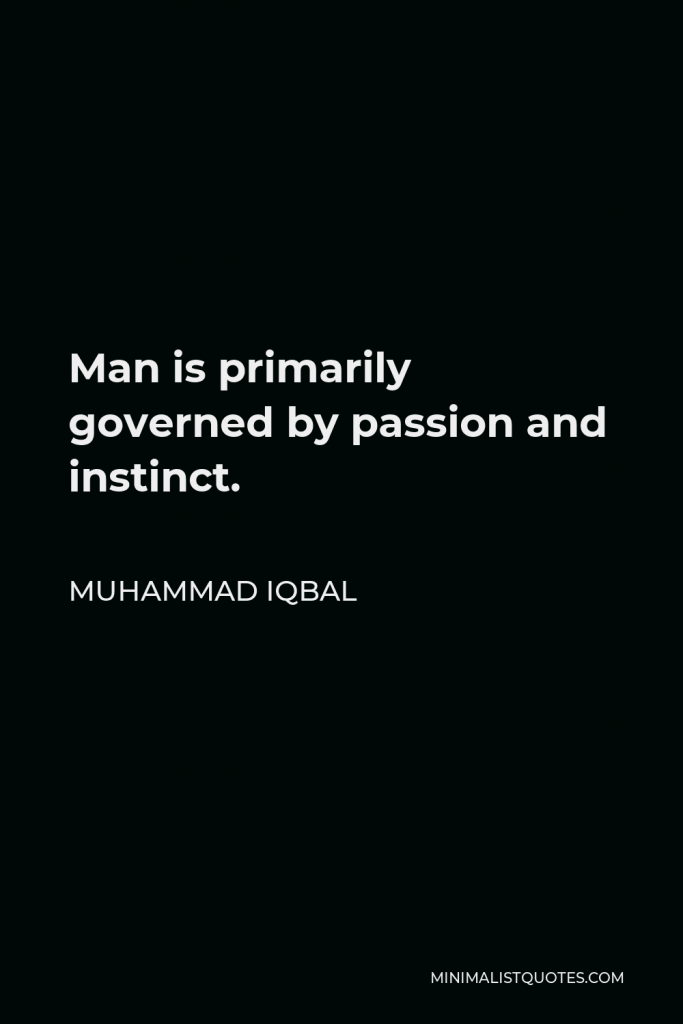

Man is primarily governed by passion and instinct.
MUHAMMAD IQBAL -





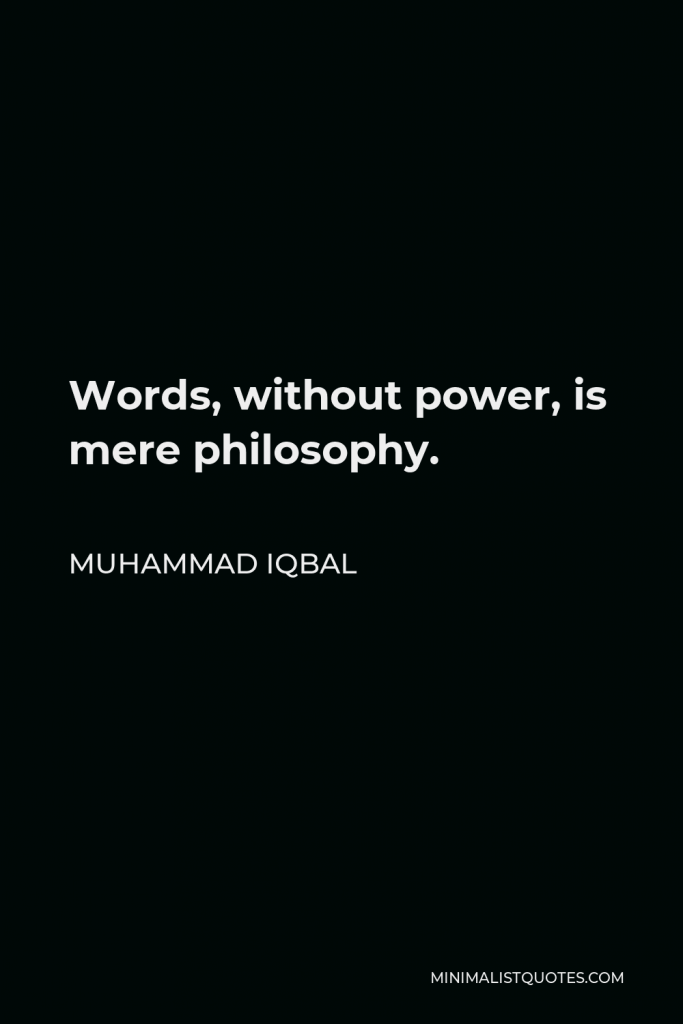

Words, without power, is mere philosophy.
MUHAMMAD IQBAL -







Water before the faithful, blood before the unbeliever.
MUHAMMAD IQBAL -





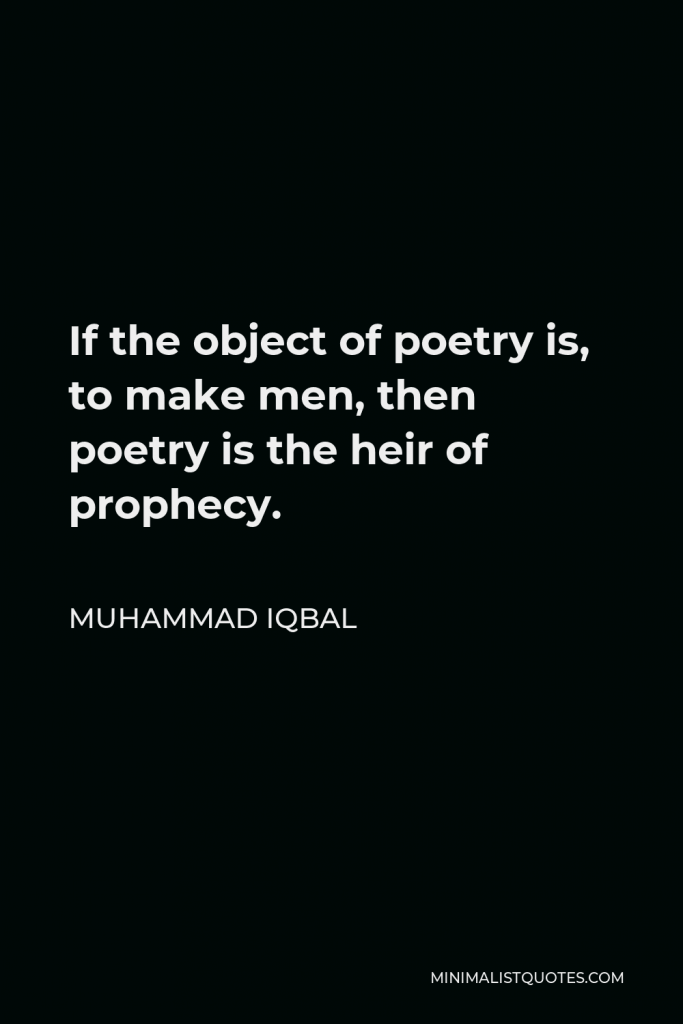

If the object of poetry is, to make men, then poetry is the heir of prophecy.
MUHAMMAD IQBAL -





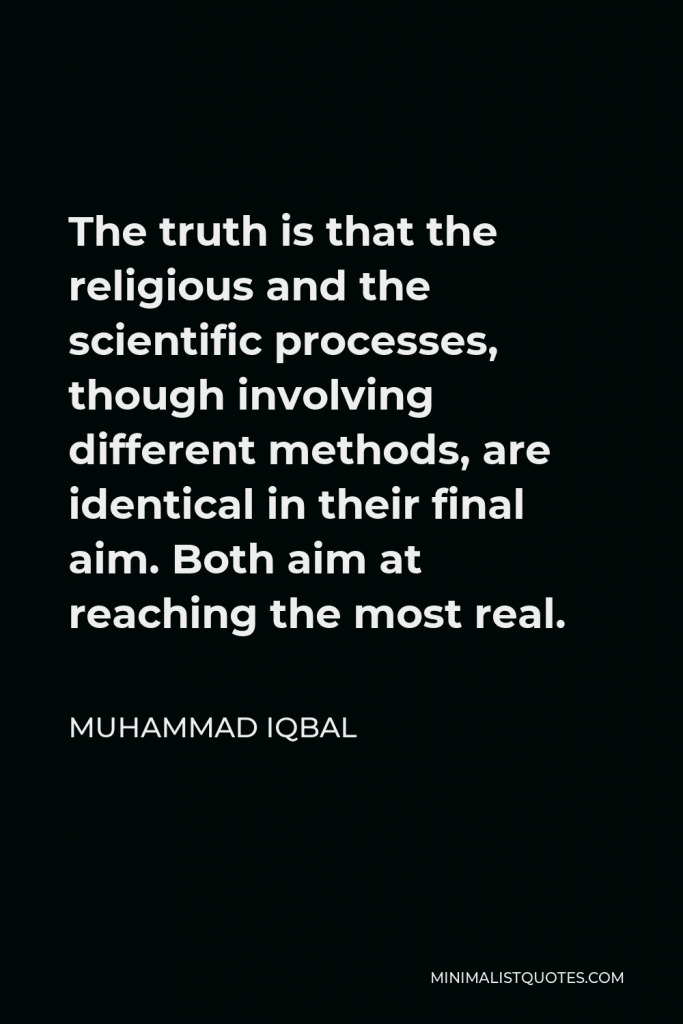

The truth is that the religious and the scientific processes, though involving different methods, are identical in their final aim. Both aim at reaching the most real.
MUHAMMAD IQBAL -





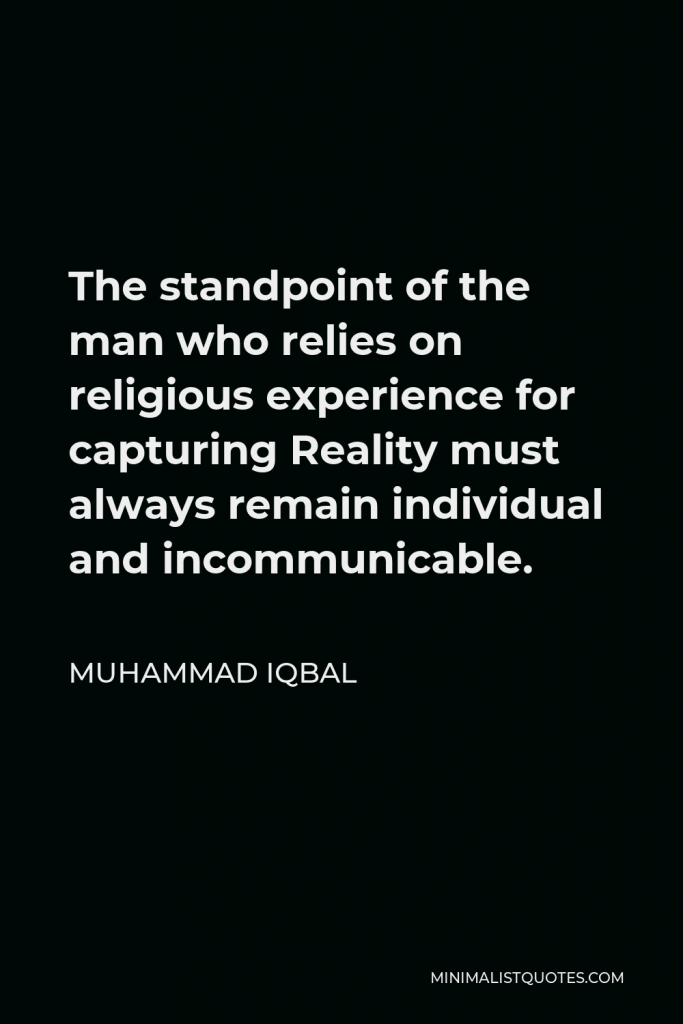

The standpoint of the man who relies on religious experience for capturing Reality must always remain individual and incommunicable.
MUHAMMAD IQBAL -





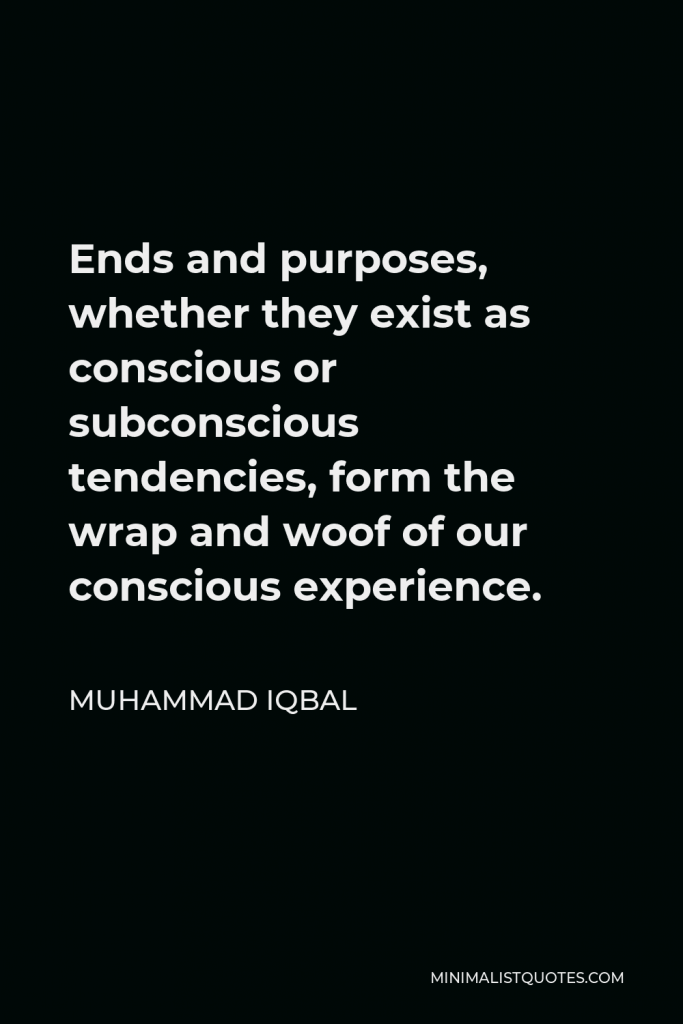

Ends and purposes, whether they exist as conscious or subconscious tendencies, form the wrap and woof of our conscious experience.
MUHAMMAD IQBAL
